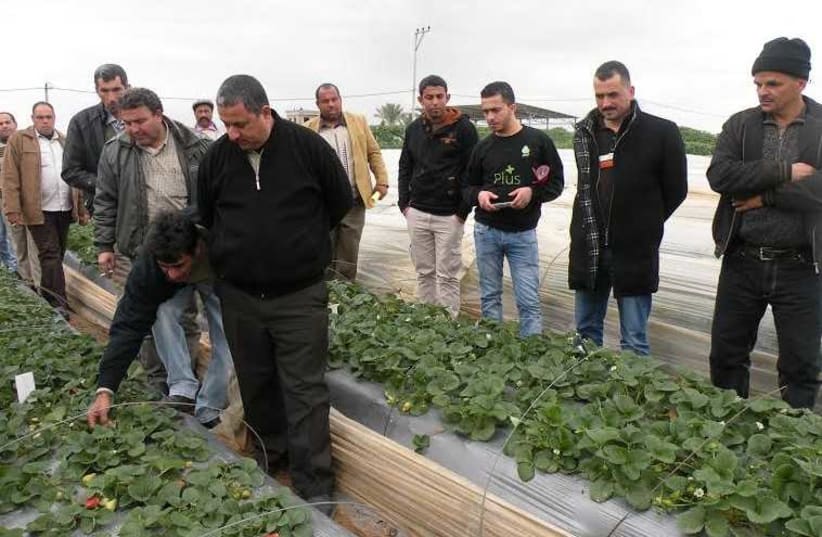Palestinian strawberry growers arrive to Israel for study-tour
Farmers came to Israel on Wednesday for a two-day continuing education program organized by the Civil Administration, to learn about some of the strawberry growth methods being used in Israel.
